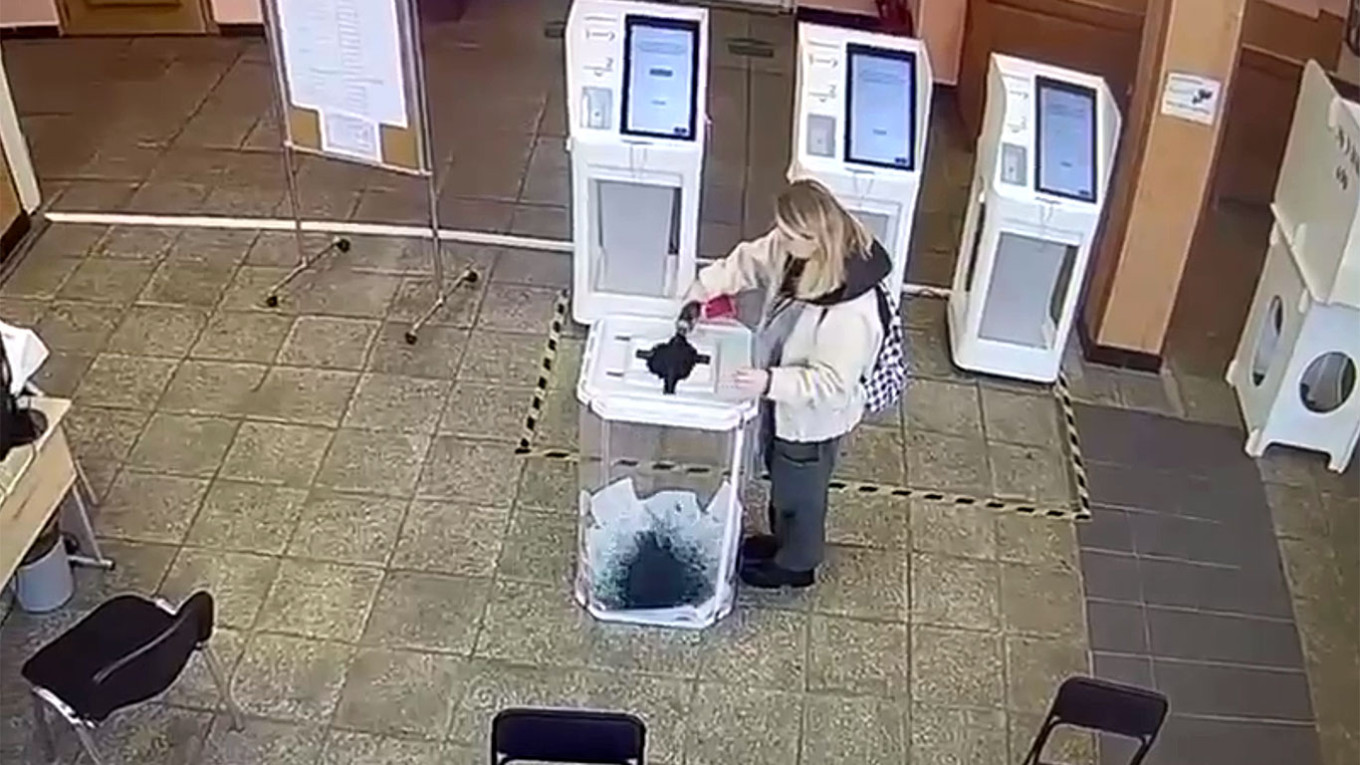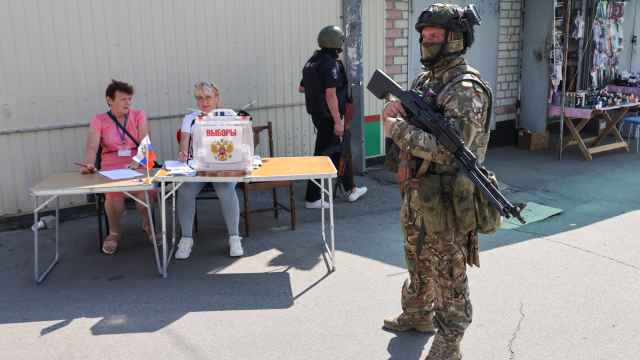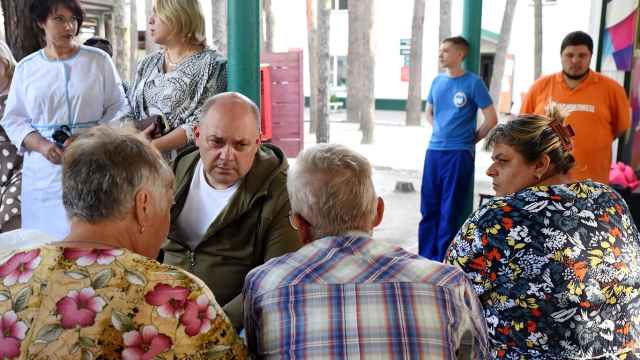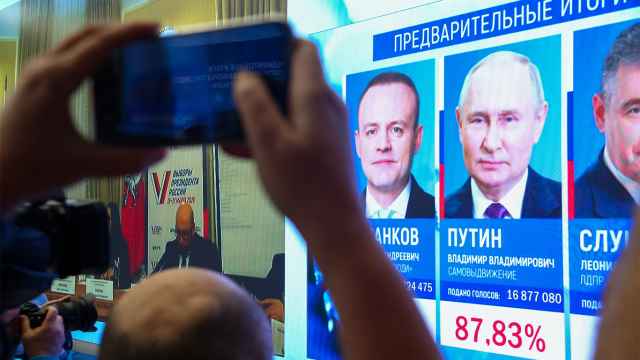Russian election and law enforcement authorities have reported a spate of incidents involving voters spilling green antiseptic dye into ballot boxes on the first day of the presidential election.
The dye, called zelyonka in Russian, was widely used in attacks on opposition activists figures during the 2010s.
Russia’s Central Election Commission (CEC) called for security upgrades after dye-spilling incidents occurred in southern Russia’s Rostov region and the republic of Karachayevo-Cherkessia.
CEC chief Ella Pamfilova claimed those arrested in the dye-spilling incidents said they had been promised money and were unaware of criminal punishment for the actions.
Investigators in the Rostov region later announced a criminal case against a 62-year-old man on charges of obstruction of voting rights, which carry a maximum sentence of five years in prison.
Two ballot boxes were similarly damaged in the town of Borisoglebsk in southern Russia’s Voronezh region, according to local media.
Authorities there said they would determine whether to count the spoiled ballots after voting ends on Sunday.
Meanwhile, investigators in Moscow said they had detained a local woman on suspicion of a similar incident.
Footage shared by the independent news outlet Sota showed the woman spilling green dye into the ballot box after casting her vote.
The 20-year-old also faces up to five years in prison on charges of obstruction of voting rights.
A sixth ballot box was damaged with green dye by an elderly woman in annexed Crimea, according to media with links to Russia’s security forces. A seventh incident was later reported in the Volgograd region.
President Vladimir Putin is expected to clinch re-election to a fifth term in the March 15-17 vote with all real opposition barred from the ballot.
A Message from The Moscow Times:
Dear readers,
We are facing unprecedented challenges. Russia's Prosecutor General's Office has designated The Moscow Times as an "undesirable" organization, criminalizing our work and putting our staff at risk of prosecution. This follows our earlier unjust labeling as a "foreign agent."
These actions are direct attempts to silence independent journalism in Russia. The authorities claim our work "discredits the decisions of the Russian leadership." We see things differently: we strive to provide accurate, unbiased reporting on Russia.
We, the journalists of The Moscow Times, refuse to be silenced. But to continue our work, we need your help.
Your support, no matter how small, makes a world of difference. If you can, please support us monthly starting from just $2. It's quick to set up, and every contribution makes a significant impact.
By supporting The Moscow Times, you're defending open, independent journalism in the face of repression. Thank you for standing with us.
Remind me later.






